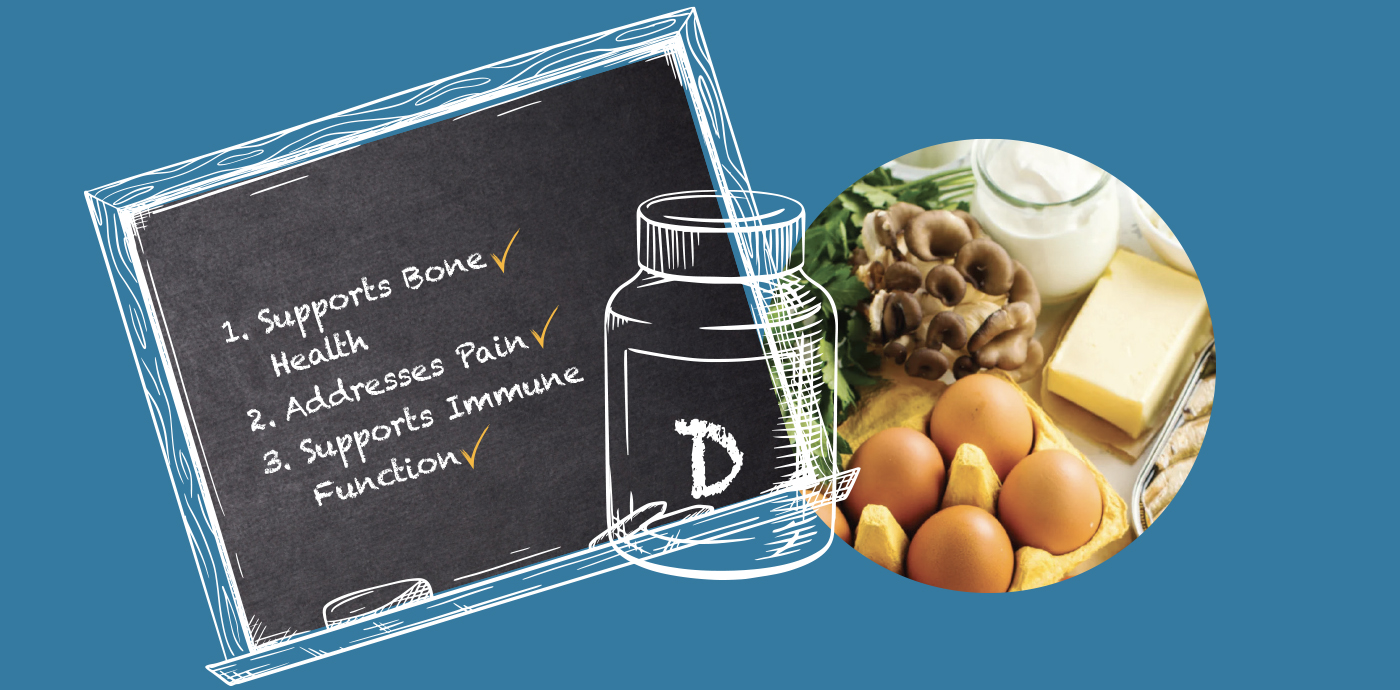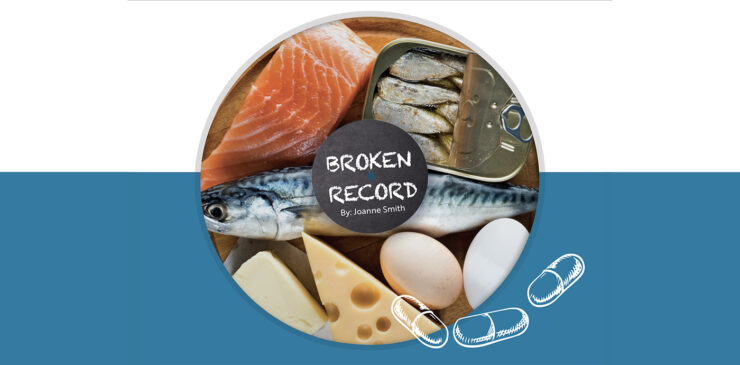As I’ve mentioned in previous articles, Vitamin D plays a multitude of roles in the body (many of which are particularly important to people with SCI):
Supports Bone Health
The incidence of osteoporosis following SCI is over 80%. Calcium is vital to bone formation and Vitamin D is essential for calcium absorption.
Addresses Pain
Up to 81% of individuals with an SCI are estimated to experience musculoskeletal pain. Studies demonstrate there is a direct correlation between low Vitamin D levels and musculoskeletal pain.
Supports Immune Function
It is well documented that people with SCI have compromised immune systems and are at increased risk of infection. Vitamin D is an immunomodulator, meaning it has a positive influence on the immune system.
A new study this year (Laird et al.) has added to the growing benefits of Vitamin D. The study provided evidence of a link between vitamin D deficiency and inflammation. While this study targeted older adults, it is relevant to the SCI population for several reasons. First, studies have documented the tendency for individuals with SCI to age faster than their able-bodied counterparts. Second, Vitamin D deficiency is common in the SCI population. Third, SCI is a condition commonly associated with systemic inflammation.

We are susceptible to chronic inflammation due to several factors such as trauma, stress, infection, intake of medications, sleep disorders, being overweight (65% of people with SCI are overweight), a sedentary lifestyle and a tendency to have poor diets. Lastly, chronic inflammation is associated with a host of diseases, disorders and conditions, many of which people with SCI are at increased risk of developing, such as cardiovascular disease, type 2 diabetes, arthritis, pain and depression.
It is shown that Vitamin D can help reduce inflammation by suppressing inflammatory signalling proteins while stimulating the synthesis of anti-inflammatory signalling proteins. The best source of vitamin D is from the sun. However, our long Canadian winters don’t allow us to maintain optimal vitamin D levels throughout the year. And while it is possible to get some Vitamin D from oily fish, mushrooms and eggs, it is nearly impossible to get the amount our body needs from these food sources. The good news is, this study demonstrated that vitamin D supplementation can help reduce inflammation and the risk of many inflammatory diseases.
The positive outcomes of Vitamin D studies, such as this one, in recent years, led to Health Canada increasing the maximum amount of vitamin D supplements sold over-the-counter to 2,500 IU per dose for adults (vs. the previously recommended dose of 1000 IU).
So, I’ve said it before, but I’ll say it again – I highly encourage you to talk with your health care provider and optimize your vitamin D levels!






